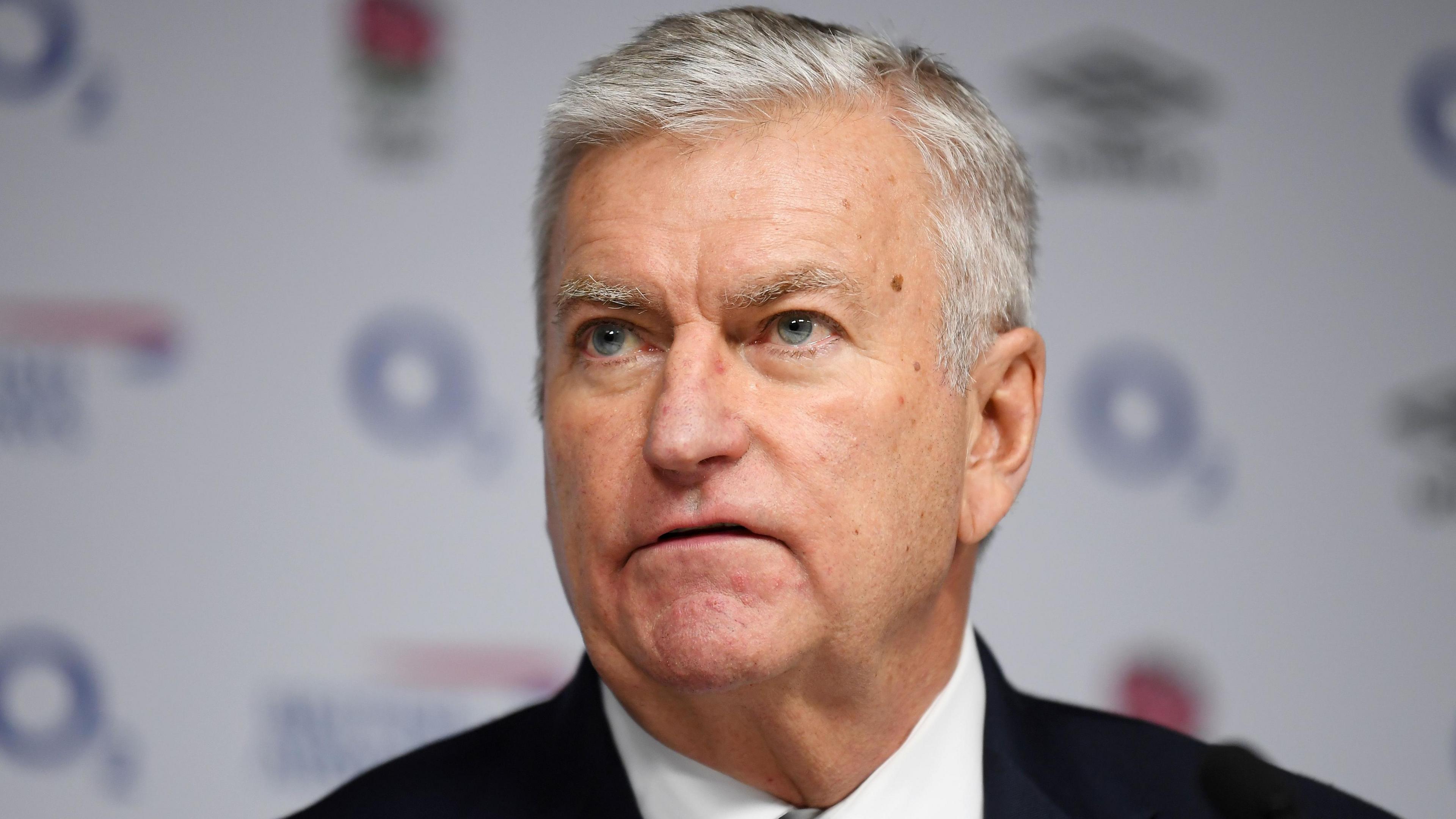ARTICLE AD BOX
 Image source, Getty Images
Image source, Getty Images
Sweeney was appointed as RFU chief executive in 2019 after a similar role with the British Olympic Association and corporate leadership posts with Shell, Mars and Unilever
Rugby union correspondent
The latest Rugby Football Union accounts, published on Monday, have been met by uproar both inside and outside Twickenham.
Not only did the report show an operating loss of nearly £40m, but chief executive Bill Sweeney pocketed £1.1m, after scooping a bonus of £358,000 to go with his salary of £742,000.
Furthermore it has emerged that Sweeney was one of six executives who shared a bonus pot of £1.3m at a time when the union is making over 40 people redundant.
One RFU employee has told the BBC the Twickenham rank-and-file are "beyond livid" with the money being dished out to executives, while former RFU bosses have called for Sweeney to resign.
BBC Sport tackles some of the big questions raised by accounts.
Why has the RFU lost so much money?
Image source, Getty Images
Image caption,England men's matches at Twickenham are the biggest driver of revenue for the RFU
The RFU says over 80% of its revenue is driven by hosting England men's matches at Twickenham. With each major game generating over £10m in ticket sales and corporate hospitality, World Cup years always leave a big hole in the finances.
Instead of a four-game Autumn Nations Series, England played two World Cup warm-up matches at Twickenham, which are far less commercially valuable. One of those was a defeat by Fiji in August, played in front of pitifully small crowd.
The rotating Six Nations schedule means that England played only two home games last season. The RFU says it always plans for a loss in a men's Rugby World Cup year but the figure for 2023-24 still dwarfs the losses in 2019.
The RFU adds that is also dealing with inflationary costs and reduced sponsorship and broadcast deals from summer warm-ups compared to November internationals.
Despite the losses, the RFU still has money from the CVC deal in 2021 in their cash reserves. But given the stagnant media rights landscape, and the lack of discernible growth in central revenues, the Six Nations deal with CVC has aged badly.
Meanwhile, the RFU recently brought in over £100m by selling the Twickenham naming rights to Allianz. However, the accounts revealed the Allianz deal is over the course of 13 years, rather than 10, and is therefore less lucrative than first reported.
Why is Sweeney paid so much?
Image source, Getty
Image caption,Sweeney (right) oversaw the appointment of current England head coach Steve Borthwick (left) and the sacking of his predecessor Eddie Jones
Aside from the bonus, Sweeney's basic salary has grown hugely in the five years he has been in the job, from £430,000 to £742,000. While the RFU says his salary is in line with other companies of a similar size, Sweeney remains one of the highest paid administrators in UK sport.
He has spent much of his tenure firefighting - whether due to the performance of the men's senior side, his decision to hand Eddie Jones a new contract in 2020, the botched handling of tackle heights at community level, the future of the second-tier Championship, or four professional clubs going bust on his watch - but there is no doubt Sweeney has an unenviably wide brief and a huge amount of responsibility.
As the man at the helm of the RFU, he has over-arching responsibility for everything from tag rugby at community level to line-managing England head coach Steve Borthwick.
He also represents the RFU when it comes to World Rugby, European Professional Club Rugby, the Six Nations and the British and Irish Lions. It is a big job which deserves big pay, although whether it needs to be as big as £742,000 a year is debatable, as is whether the RFU should have as wide a brief as it currently does.
As for the bonus, this is a three-year Long Term Incentive Plan, which was approved by the RFU's remuneration committee off the back of the Covid pandemic, a treacherously difficult period which Sweeney has done well to navigate.
"During the pandemic, the executive team took deeper and longer salary cuts than the rest of the organisation along with a reduced bonus," explained RFU chairman Tom Ilube, who is a member of the remuneration committee.
"The [long-term incentive plan] put in place post Covid, recognised the material and voluntary reduction in remuneration, despite an exceptional increase in workload, while also incentivising the executive team to remain in post to deliver against challenging multi-year targets."
Sweeney needed to satisfy a variety of criteria to cash in the bonus. While he achieved 100% in "Financial Performance" - the area that carried comfortably the most weight - and "Participation in Community Rugby for Men", he scored 0% on "Rugby Inclusivity" and "Participation in Community Rugby for Women and Girls."
He scored 75% on "win ratio of men and women's senior teams", which was a blended percentage and was massively bolstered by the performance of the Red Roses. This all meant he received 77.5% of the bonus on offer, a sum of £358,000.
What has been the reaction?
Image source, Getty Images
Image caption,Francis Baron, one of Sweeney's predecessors, has called on him to resign
The BBC has spoken to a number of employees at Twickenham from a variety of different departments. One source said the staff are "beyond livid", another described the situation as "mental", and one said the "optics are mind-blowing".
Shortly before the announcement of redundancies was made, it was confirmed all staff would receive a 3% bonus. However, the BBC has been told a payment called Event Day Allowance [EDA], which match day staff received, is being cut, meaning some staff will actually face a wage reduction. It is understood EDA does not affect executives.
Meanwhile, two former RFU bosses have called for heads to roll. Graeme Cattermole, chairman from 2001 to 2004, and Francis Baron, chief executive between 1998 and 2010, told The Times that Sweeney and Ilube should “fall on their swords”., external
The Community Clubs Union has been equally scathing.
"The community game is dying. So far this season, we have had almost 300 walkover results as teams fail to field sides, and a deeply concerning lack of match officials. Both elements of the game have lost financial support over the last five years," it said.
"Sadly, the checks and balances of the RFU council are now powerless and the management board continue to run without accountability. Enough is enough now and, with the relaunch of the CCU in the coming weeks, part of our core manifesto will be for both Sweeney and Ilube to go."
In his notes in the annual report, Sweeney points to the delivery of the Professional Game Agreement with the Premiership clubs, the cash reserves, stabilising player numbers and the success of the Red Roses as among the reasons why there should be a "great deal to be positive about".
But this is not necessarily a widely shared view, and there is growing pressure on Sweeney and the RFU hierarchy to prove to the whole of English rugby they are the right people to take the game forward.

 1 month ago
9
1 month ago
9








 English (US) ·
English (US) ·